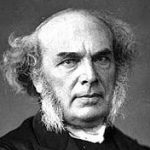Lesson Focus: This lesson is about the eternal and practical implications of Christ’s resurrection from the dead.
Know Where You Stand: 1 Cor. 15:1-4.
[1] Now I would remind you, brothers, of the gospel I preached to you, which you received, in which you stand, [2] and by which you are being saved, if you hold fast to the word I preached to you–unless you believed in vain. [3] For I delivered to you as of first importance what I also received: that Christ died for our sins in accordance with the Scriptures, [4] that he was buried, that he was raised on the third day in accordance with the Scriptures, [ESV]
In chapter 15, Paul moves on from the problem of their disorderly worship, which required correction [14:40], to their disordered belief, which was equally in need of being set right. Unlike the other issues he has addressed in the letter, this is not a case of inadmissible behavior, but the ethical admonitions in this discourse betray his conviction that errant belief inevitably leads to inadmissible behavior. Paul begins this chapter with a prologue about what has been preached from the beginning about Christ’s being raised from the dead. His purpose is not to argue that Christ’s resurrection was real but to remind the Corinthians of the consensus of preaching and testimony that he shares with the apostles and other resurrection witnesses. He chooses to start with a matter on which there is complete unanimity among the Corinthians – Christ was raised from the dead – and then argue from that the necessary consequences of Christ’s resurrection for believers. His strategy is to work from where they are – asserting twice that they believed the preaching about His resurrection – to get them to move to where he wants them to be.
[1-2] The introduction to the first section on the resurrection is abrupt and launched by the address brothers. Paul wants the Corinthians to know what they should already know since they believed the gospel that he preached to them. Because Paul must remind them shows that they have veered off course. He does not question their loyalty to the gospel, however, but seeks to establish at the outset their common ground. They are not willfully perverting what he preached but are confused about a central tenet. Paul correlates his preaching of the gospel with their response: you received … you stand … you are being saved. The first reference to Paul’s preaching [1] is followed by an affirmation of the Corinthians’ positive response. The second reference to his preaching is followed by an implicit warning not to deviate from that gospel: unless you believed in vain [2]. The implication is that they may be departing from the gospel that Paul preached to them, whether they accepted it in a hasty fashion without due deliberation of the facts or now decide to question it. The Corinthians’ belief is confused, which suggests that they accepted the gospel without fully understanding the facts that lie at its foundation. The gospel is the power of God for salvation, and they owe their new existence as Christians to Paul’s preaching of this gospel. If they do not hold firmly to what has been preached about the resurrection, they jeopardize their future with God. If they do not have faith that holds out, they believed in vain. If they have faith in something that is untrue, they believed in vain. The resurrection is the keystone that integrates the incarnation and Christ’s atoning death. If it is removed, the whole gospel will collapse. If there is no resurrection of the dead, humans remain under the tyranny of sin and death, and their bouts of doubt and despair are fully justified.
[3-4] Before citing the content of the tradition of faith he preached, Paul establishes that it was something he received and passed on to them like a baton. He stresses the continuity of tradition. Paul offers a theological snapshot of the gospel, reminding the Corinthians of basic facts that do not need any amplification because the story had already been narrated and interpreted for them. The key verbs underscore Christ’s atoning death and resurrection and are punctuated by the assertion that it was in accord with the Scriptures: Christ died … buried … raised … appeared … in accordance with the Scriptures. That Christ died and that he was resurrected on the third day are facts, but their meaning is interpreted by the Scriptures. Christ’s atoning death is a central tenet of the faith. There is no true proclamation of the gospel which does not explain the link between human sin and the death of Christ. Indeed, there is no gospel at all unless the death of Christ can be seen to deal with sin once and for all. This death was not a sad misadventure but something God destined for Him because of the sins of humankind. The phrase in accordance with the Scriptures affirms in shorthand that Christ’s death was according to the definite plan and foreknowledge of God [Acts 2:23].
Imagine a Faith Without Resurrection: 1 Cor. 15:12-19.
[12] Now if Christ is proclaimed as raised from the dead, how can some of you say that there is no resurrection of the dead? [13] But if there is no resurrection of the dead, then not even Christ has been raised. [14] And if Christ has not been raised, then our preaching is in vain and your faith is in vain. [15] We are even found to be misrepresenting God, because we testified about God that he raised Christ, whom he did not raise if it is true that the dead are not raised.
[16] For if the dead are not raised, not even Christ has been raised. [17] And if Christ has not been raised, your faith is futile and you are still in your sins. [18] Then those also who have fallen asleep in Christ have perished. [19] If in Christ we have hope in this life only, we are of all people most to be pitied. [ESV]
If the gospel proclaimed to the Corinthians revolved around these crucial facts, culminating in the resurrection of Jesus, and if through this gospel their lives had been completely redirected and transformed, it was inconceivable that anyone should have asserted that there is no resurrection of the dead. If resurrection does not exist in any shape or form, then the consequences to Christian faith and discipleship are devastating. It is important, with Paul, to push people to see the logic of their beliefs, whether those beliefs are orthodox or heretical. Many Christians have never applied their faith either to their ordinary thinking or to their daily behavior. Likewise, those who deviate from biblical truth must face up to the implications of what they assert and deny. This is what Paul does in verses 13-19. To deny resurrection is to strip the Christian message of seven essentials: (1) Christ has not been raised [13,16]; (2) Our preaching is in vain [14]; (3) Your faith is in vain [14]; (4) We are misrepresenting God [15]; (5) You are still in your sins [17]; (6) Those who have fallen asleep in Christ have perished [18]; and (7) We are of all men most to be pitied [19].
Christ has not been raised. If there is no such thing as resurrection, then Jesus Himself did not triumph over death. If dead men don’t rise, then Jesus is still dead. Presumably, the Corinthian heretics never intended to suggest that Jesus was still dead; but Paul is pressing the logic of their position, in order to reveal its menace. If the Corinthians decide to pick and choose which aspects of the truth they will accept, they will end up with no truth. This is nowhere more obvious than in the case of resurrection. This attitude reveals, in general, the danger of coming to the person and work of Jesus with even one preconceived idea about what can and cannot be true, what can and cannot happen.
Our preaching is in vain. Paul regards himself supremely as a preacher of the gospel. He is, therefore, stating that his whole life has been a complete waste of time if there is no such thing as resurrection. All those persecutions, sufferings, tribulations have been pointless. The obvious implication is that, not only has his life’s ministry been founded on a fraud and a hoax, but so has every other apostle’s – indeed every other believer’s. The word translated in vain literally means ‘empty’: i.e., take out the resurrection of Jesus, and there is nothing left to the Christian’s proclamation. As Paul shows in the rest of the chapter, the whole sweep of salvation in time and eternity is based, not merely on the resurrection-principle, but on the fact of Jesus’ resurrection.
Your faith is in vain. Because their faith was based entirely on his preaching [15:1-2], the collapse of the ground of his preaching necessarily meant the collapse of their faith. Take out the resurrection of Jesus, and there is nothing left on which to rest faith – only the decomposing corpse of an itinerant Jewish carpenter-turned-rabbi. Here, as everywhere, Paul underlines the truth that faith is produced by looking to Jesus Christ, crucified and risen. Faith is not created, sustained or increased by looking at ourselves or at others, but only by absorbing the reality and the implications of the resurrection of Jesus.
We are misrepresenting God. The very reputation, and even the character, of God is destroyed if there is no such thing as resurrection. Paul’s vocation and ministry are consistently portrayed as given him by God, not assumed by himself. The gospel he proclaimed was not his own invention, but given him by God through revelation. Specifically, Paul’s claim was that God … raised Christ: if He did nothing of the sort, if Jesus was another guru-figure and in fact an impostor, it is nothing short of blasphemy to link the name of God almighty with such a person. The only convincing reason for linking God to the person and work of Jesus is the fact of His resurrection. Only God has power over death: if Jesus rose from the dead, God raised Him.
You are still in your sins. In verse 14 Paul has referred to faith being empty, devoid of content. Here he writes of its being unable to secure any results, i.e., being weak and ineffective. Of course, if it has no content, it will not achieve anything at all. But Paul’s main thrust in this verse 17 is that the sin problem remains unsolved, if Jesus did not rise from the dead. All talk of Christ dying for our sins in accordance with the scriptures becomes meaningless, if in fact he stayed dead. If Jesus stayed dead, there are only two possible conclusions: either he was not the sinless person everyone thought Him to be and His death marked His final separation from God; or He might have been without personal sin, but His attempts to atone for the sin of the world by His death did not meet with divine approval. Either way, we are still in our sins, cut off from God and facing His judgment, like everyone else.
Those who have fallen asleep in Christ have perished. Another awful consequence of there being no resurrection is that death remains, not just the last enemy [26], but the one invincible terror. Death is not falling asleep in Christ and waking up to see His smile of welcome into the Father’s house; it is hard confirmation of the lostness of all men, that we are all doomed to perish without hope and without God. It is no coincidence that Paul almost casually, if not unconsciously, introduces the pregnant phrase in Christ at this point. As we shall see, this is the core of his positive teaching about the implications of the resurrection of Jesus; but it becomes empty words if Christ turns out to be nothing more than a dead guru.
We are of all men most to be pitied. If Christ was not raised from the dead, any expectation of life beyond death with Him evaporates. We are then left with a pseudo-gospel which purports at least to give some meaning to our life here on earth. This presumably takes the form of doing the best we can to follow the example of Jesus Christ, assuming that we select Him as our mentor in preference to countless other teachers, wise men and leaders. Paul sees this attitude to Jesus as pitiable and pathetic: if there is no such thing as resurrection, much of Jesus’ teaching falls to the ground and He is revealed to be a liar. Yet the Corinthian Christians had set their hope on Christ as Lord of life, death and eternity. If he was not raised from the dead, He is not Lord of anything. If life here on this earth is all there is, it makes no sense to base our hope on the groundless promises of one who made empty assertions about eternity. If the Christian faith is thus based on an empty gospel and a fraudulent savior, anybody is better off than the Christian. It is right at this stage to ask certain questions of those today who deny that there is such a thing as resurrection from the dead, and particularly dismiss the historical reality of Jesus’ resurrection from the dead. With what premises do they come to the evidence? What is the actual content of their preaching? Does their teaching lead people to a saving faith? What kind of God are they presenting? Do they believe in the assurance of sins forgiven? Do they preach such assurance? Is there any firm expectation of life beyond death?
Live Like Jesus’ Resurrection Matters: 1 Cor. 15:54:58.
[54] When the perishable puts on the imperishable, and the mortal puts on immortality, then shall come to pass the saying that is written: "Death is swallowed up in victory." [55] "O death, where is your victory? O death, where is your sting?" [56] The sting of death is sin, and the power of sin is the law. [57] But thanks be to God, who gives us the victory through our Lord Jesus Christ. [58] Therefore, my beloved brothers, be steadfast, immovable, always abounding in the work of the Lord, knowing that in the Lord your labor is not in vain. [ESV]
[54-56] Paul repeats the clothing terminology in verse 53, but the when in verse 54 introduces a subtle, though significant, advance in thought. He moves from what must take place [53] to what will take place when the perishable puts on the imperishable. The ultimate destruction of death requires the resurrection of the dead. The three rhetorical questions sneer defiantly at death’s impotence before the power and mercy of God, who wills to forgive sins and to raise the dead. The sting of death enables it to exercise its dominion over the entire world, but its venom has been absorbed by Christ and drained of its potency so that the victory over death now belongs to God and to God’s people, who benefit from it. Paul adds a theological aside that identifies the sting of death is sin, and the power of sin is the law. The relationship between sin and the law is developed in Romans 5:12-14; 7:7-13. Death gains its power over humans through sin because sin demands capital punishment as its moral penalty [Rom 6:23]. The law, not only unable to arrest sin, spurs it on and pronounces death as its sentence. Paul assumes that his readers understand that through Adam came sin and death [1 Cor. 15:21-22]. Through Moses came the law. The law brings awareness of sinfulness [Rom. 4:15; 5:13,20; 7:7; Gal. 3:19], provokes impulses to sin, which then become deliberate transgressions, with the result that death tightens its stranglehold. The law cannot give life or impart righteousness [Gal. 3:21] but brings only condemnation [2 Cor. 3:6]. Through Christ alone come the gracious forgiveness of sins, redemption from the law, and the resurrection from the dead. It is this last element, the resurrection of the dead, that is at issue and that the Corinthians fail to grasp. The resurrection does not simply overturn death’s destructive forces of decay but prevails over sin’s deadly poison. Christ’s death for the forgiveness of sins causes death to lose its ultimacy, because when sin is overcome, death is robbed of its power. Christ’s death and resurrection signify that Christians are delivered from the fallen world under the tyranny of the triumvirate of sin, law, and death and await only the final manifestation of Christ, which will inaugurate their final transformation.
[57-58] In verses 57-58, argument gives way to praise as Paul offers thanks to God for the victory won through Christ and the salvific benefits of the resurrection. Paul understands that God’s gift of victory over death is certain because of the resurrection of Christ. Christians will not be the most pitiable of human beings because their hope is assured. Paul concludes this second stage of his argument on the resurrection with a moral word to the wise, just as he did the first stage in 15:34. The exhortation consists of three parts. The first part, be steadfast, immovable, interlocks with his opening admonition in 15:1-2. There, he reminds them about the gospel he preached to them, in which you stand, and by which you are being saved, with a significant proviso: if you hold fast to the word I preached to you – unless you believed in vain. They should not allow anything to knock them loose from the moorings of the testimony about Christ that has been established among them. If they lose their grip on the foundational truth that Christ was raised as the firstfruits of the dead and move away from it, they will have believed to no avail. The second part, always abounding in the work of the Lord, recalls his earlier language describing the Corinthians as the work of God because of the labors of God’s servants. The third part, knowing that in the Lord your labor is not in vain, recalls the statement in 15:14. Convinced of the resurrection of the dead, the Corinthians also know that their labor for Christ, which may lead them into life-threatening peril, is not in vain. God will use it to give growth [3:6] and will give the laborer the due reward in the end [3:8]. Until the end, the present is marked by struggle and labor. It is an existence under the cross, sustained by the hope which is based on the resurrection of Jesus Christ.
Questions for Discussion:
1. How can we avoid believing the gospel in vain? How, in practice, does a person hold fast to the word I preached to you? Why do you think Paul lists in 15:3-5 the death, burial, resurrection and appearance of Christ as of first importance to the Gospel?
2. Many today, even some who claim to be Christians, do not believe in the physical resurrection of Jesus. What are the seven essentials of the Christian Gospel that is removed by the denial of the resurrection [see verses 13-19]?
3. What are some questions that we can ask of those who deny the resurrection from the dead?
4. What is the relationship between sin and the law?
References:
1 Corinthians, David Garland, Baker.
The First Epistle to the Corinthians, Leon Morris, Eerdmans.
The Message of 1 Corinthians, David Prior, Inter-Varsity Press.

















